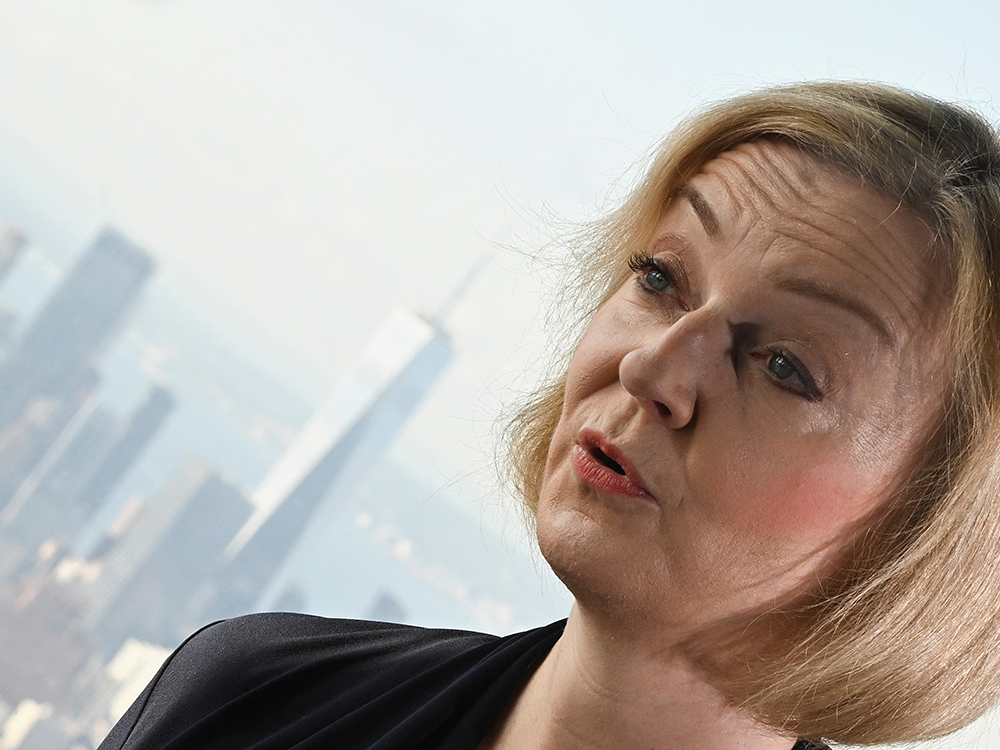Pound falls to record low amid chatter about emergency action by the Bank of England
Author of the article:
Bloomberg News
Sagarika Jaisinghani
The new prime minister of the U.K., Liz Truss, has implemented a series of tax cuts she promised during her campaign to take over from Boris Johnson. Photo by Getty Images The U.K.’s stock and bond markets have lost at least US$500 billion in combined value since Liz Truss took over as Prime Minister, with investor confidence shattered by a shock tax-cutting budget.
Advertisement 2 This advertisement has not loaded yet, but your article continues below.
Taking the helm at a time when the U.K. economy was already grappling with the spectre of recession, the Truss government’s new fiscal policies fuelled concerns that inflation and borrowing would surge at a time of rapidly rising interest rates. That triggered a cross-asset selloff so severe that it sent the pound to a record low and sparked chatter about emergency action by the Bank of England.
FP Investor By clicking on the sign up button you consent to receive the above newsletter from Postmedia Network Inc. You may unsubscribe any time by clicking on the unsubscribe link at the bottom of our emails. Postmedia Network Inc. | 365 Bloor Street East, Toronto, Ontario, M4W 3L4 | 416-383-2300
“Confidence in the UK has been sideswiped amid a pile-on of worries about the economic outlook and the direction of travel being taken by the Truss administration,” said Susannah Streeter, senior analyst at Hargreaves Lansdown. “Only a U-turn in the slash-and-spend policies is likely to significantly restore optimism, but the administration is digging in its heels.”
Advertisement 3 This advertisement has not loaded yet, but your article continues below.
The FTSE 350 Index — which comprises stocks in the export-heavy FTSE 100 and the domestically focused FTSE 250 — has now lost more than US$300 billion in market capitalization since Sept. 5, when Truss was confirmed leader of the Conservative Party. In that time, a U.K. government bond index has lost over £160 billion (US$173 billion) in market value, according to data compiled by Bloomberg. The rate on 10-year government bonds has risen by over one percentage point to surpass four per cent for the first time since 2010.
“What the U.K. government has done is said, ‘to hell with the inflation outlook, let’s just think about growth’,” said Seema Shah, chief strategist at Principal Global Investors. “Bond yields are only going to go higher and undo a lot of that positive economic movement from the tax cuts,” she said in an interview.
Advertisement 4 This advertisement has not loaded yet, but your article continues below.
Sterling-denominated, investment-grade bonds have also lost US$29 billion over the same time, dragging down the market value of a Bloomberg index that tracks the securities to the lowest level since March 2016. A gauge of sterling-denominated junk bonds — of which British companies account for more than 90 per cent — has seen its market value drop by US$1.4 billion.
Recommended from Editorial Nota Bene: ‘Mr. Speaker, we come to tax — central to solving the riddle of growth’ Truss Adviser Says Bank of England Price Concerns ‘Utter Rubbish’ UK’s Truss Tells Businesses She Wants Lower, Simpler Taxes To be sure, with bond holders more likely to buy and hold until maturity, the selloff in bonds is relatively smaller when compared to other assets. On Tuesday, U.K. bonds had recovered some ground and the pound was headed for its biggest rally in months.
This advertisement has not loaded yet, but your article continues below.
Article content For stocks, the measures put at risk the FTSE 100’s outperformance this year, which has been reinforced by its exporter-heavy members. The index is down about five per cent so far in 2022, compared with about a 20 per cent slump in the Stoxx 600 Index, but its lead has narrowed in September.
“Far from being the safe pair of hands investors have been used to, the U.K. seems more like the wild west at the moment,” said Danni Hewson, a financial analyst at AJ Bell.
Bloomberg.com
_____________________________________________________________
If you liked this story, sign up for more in the FP Energy newsletter.
_____________________________________________________________
